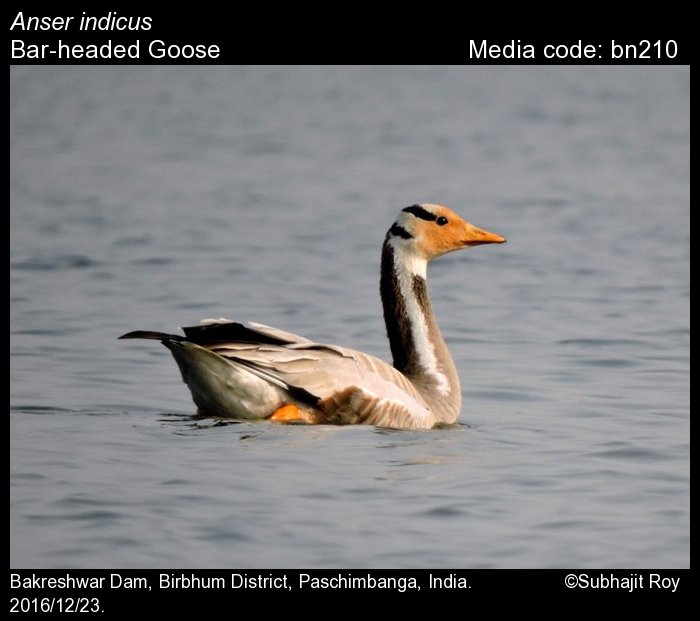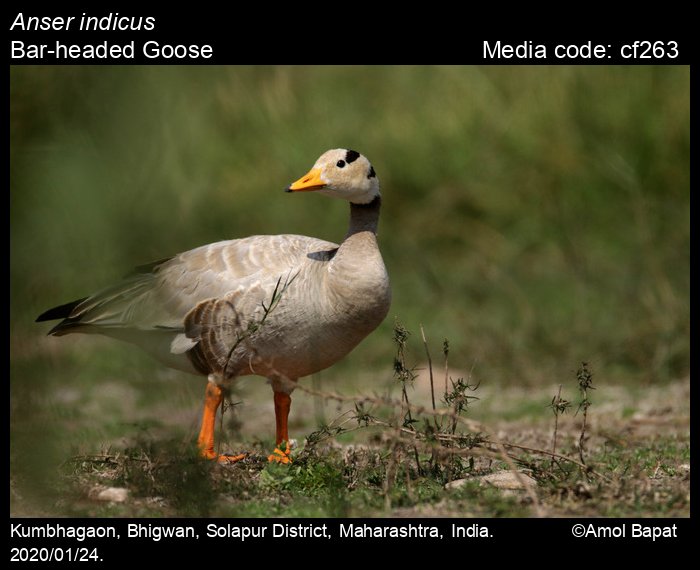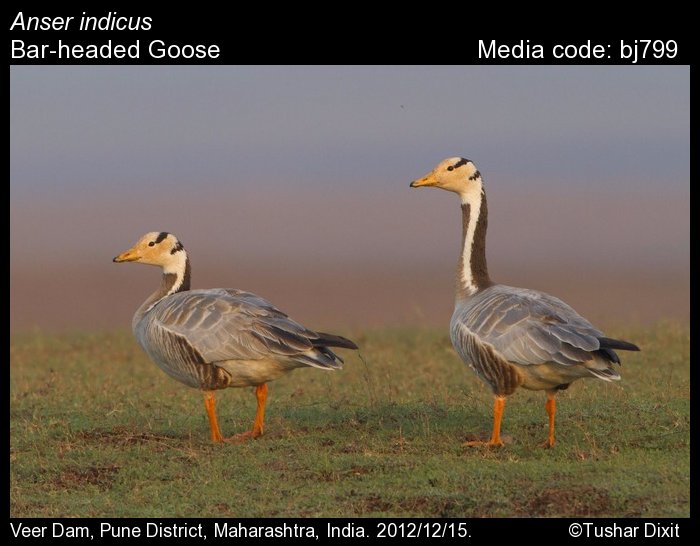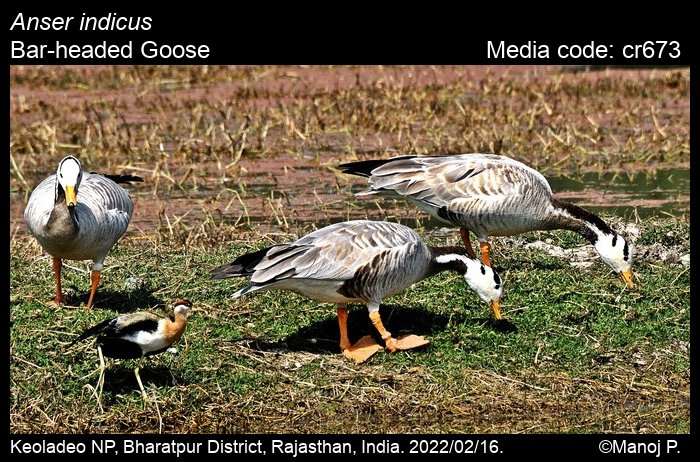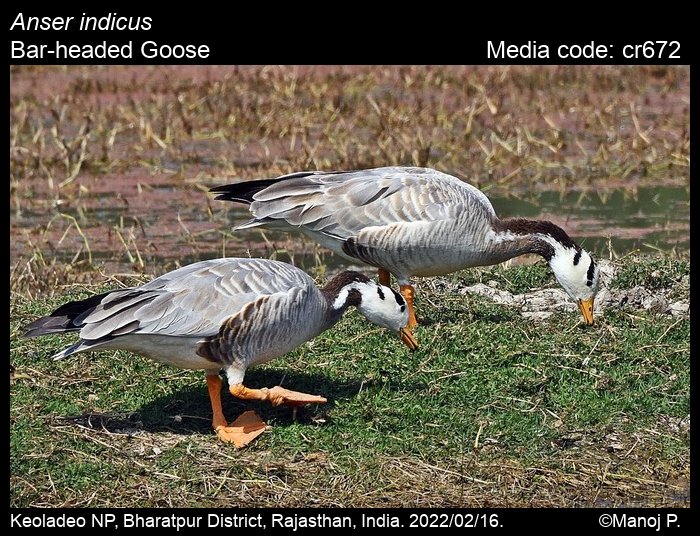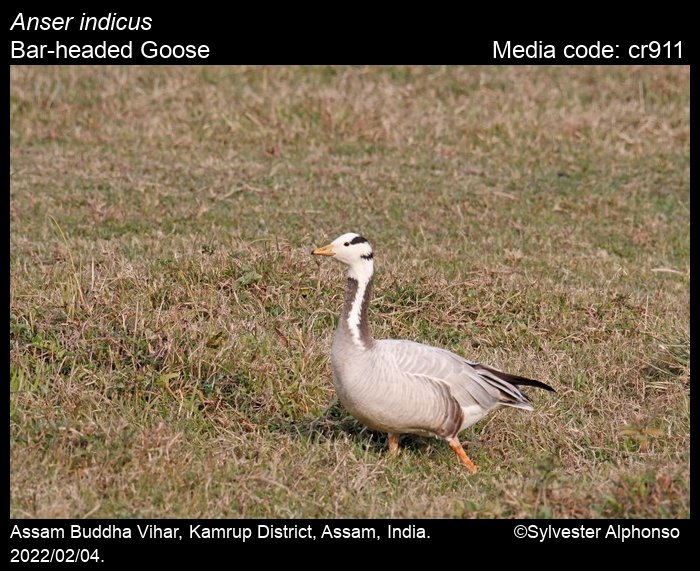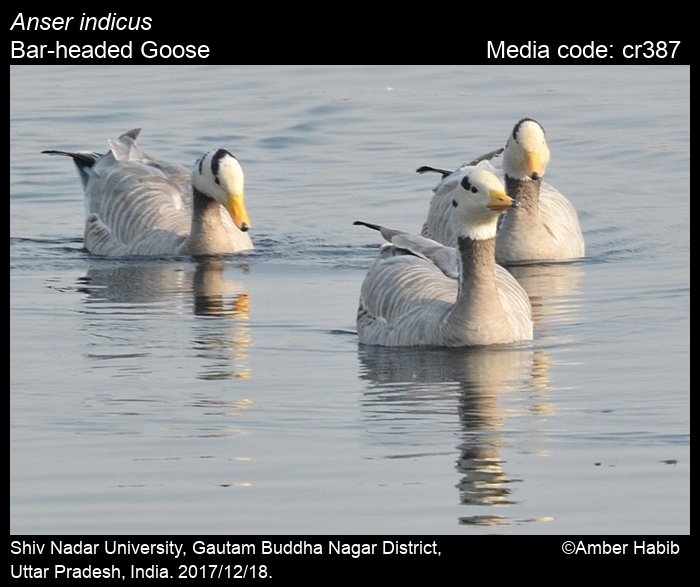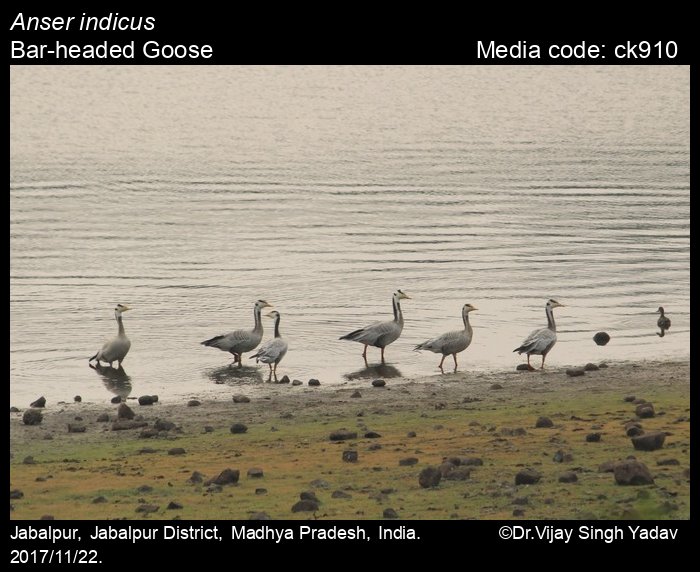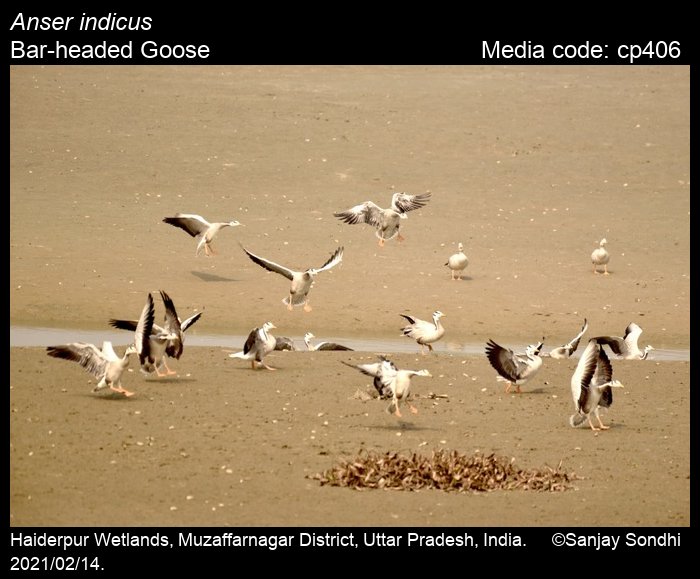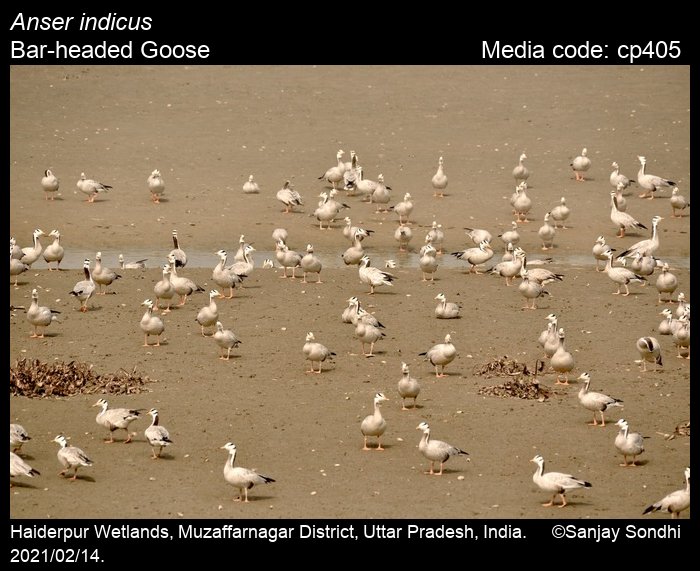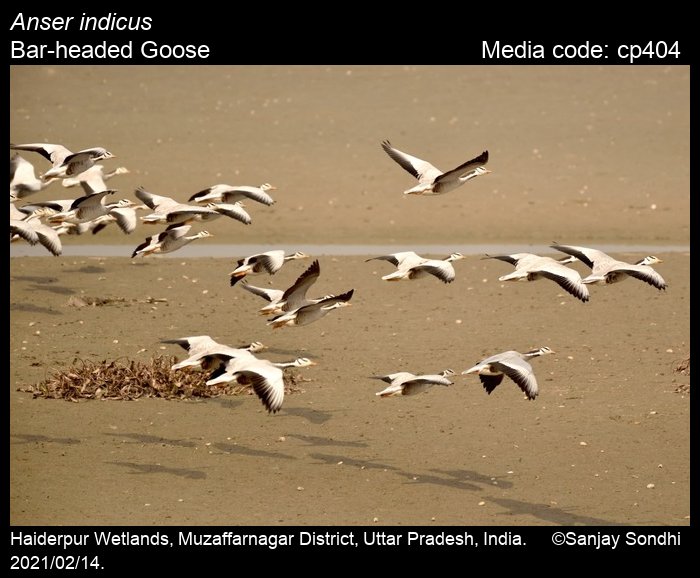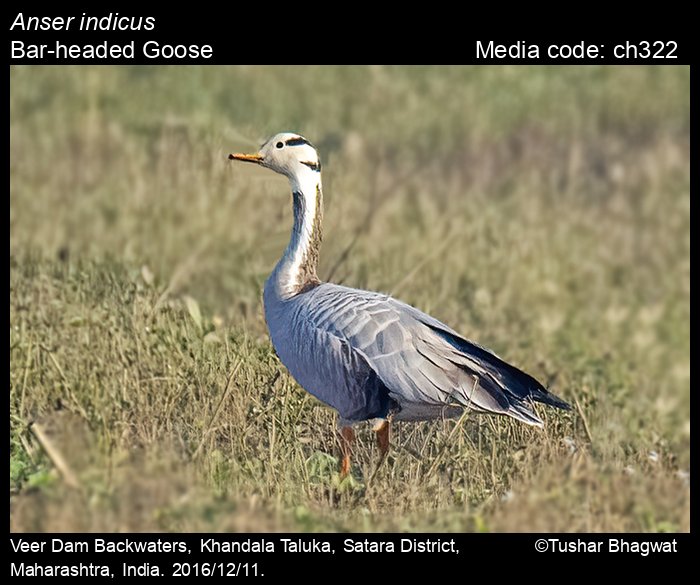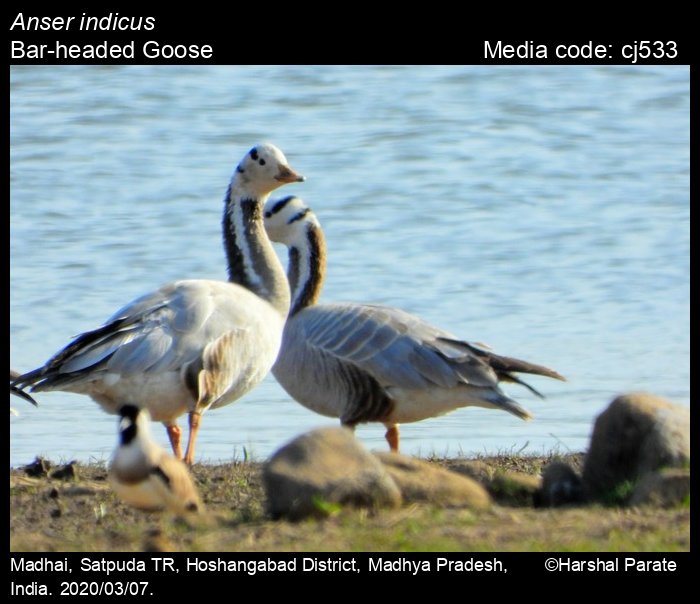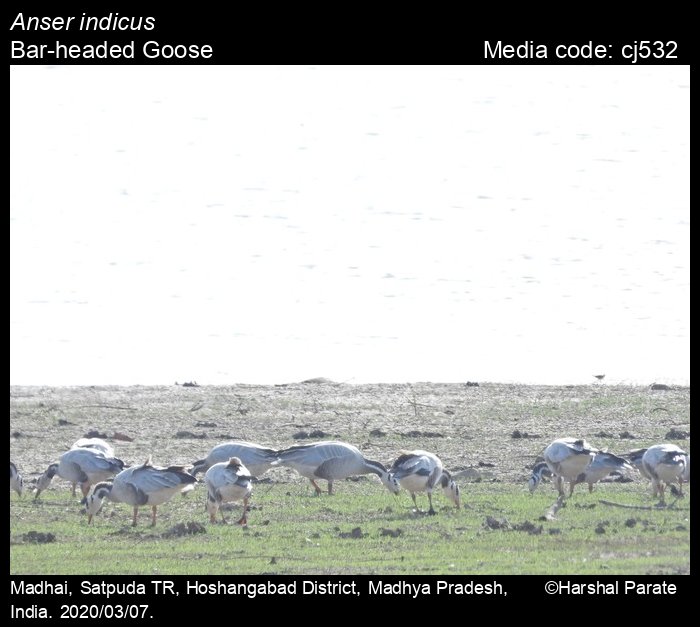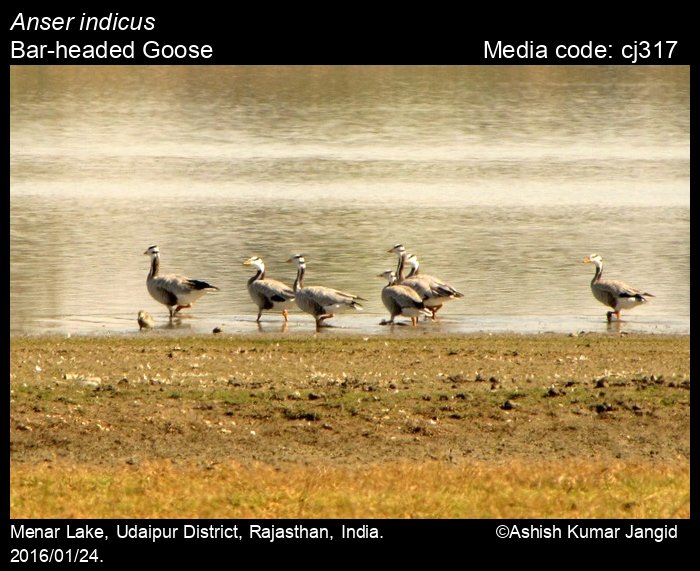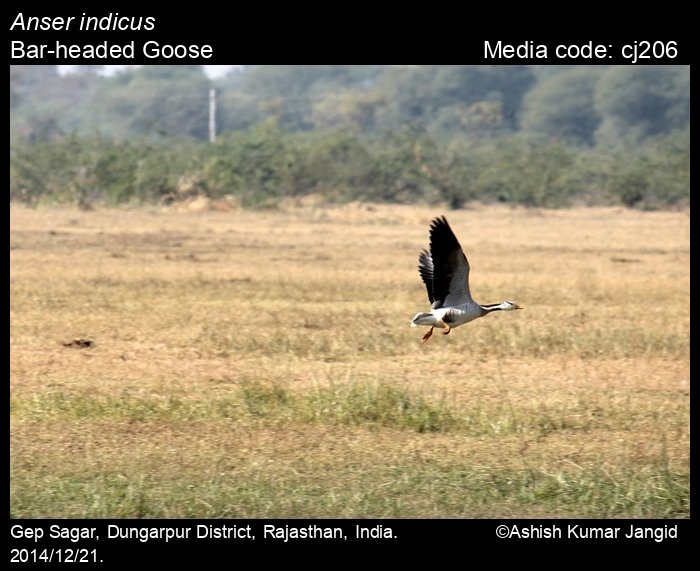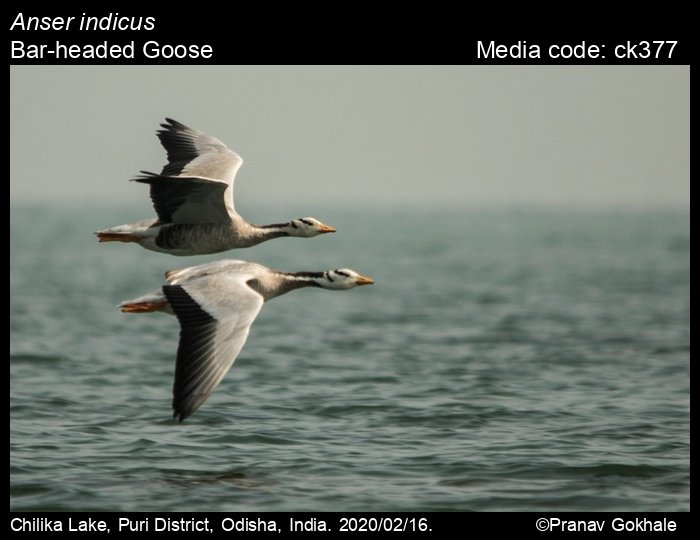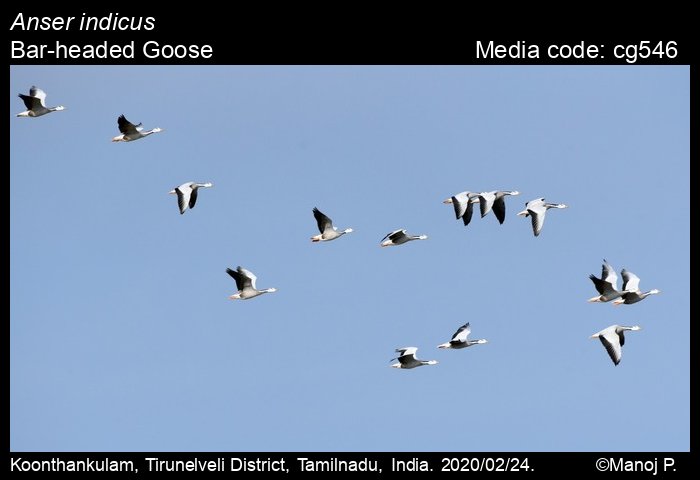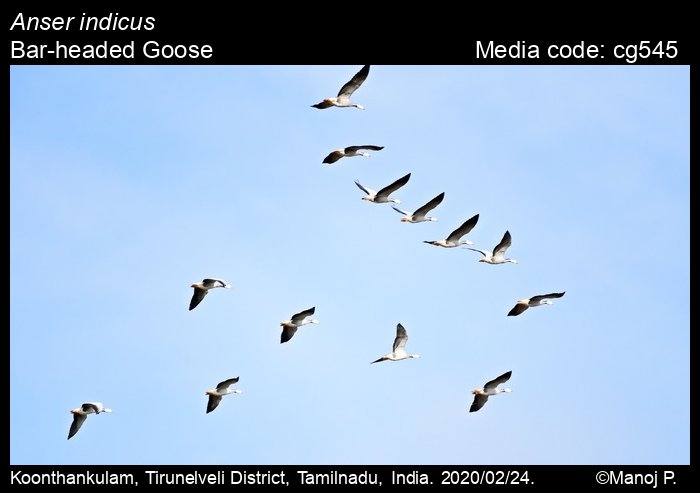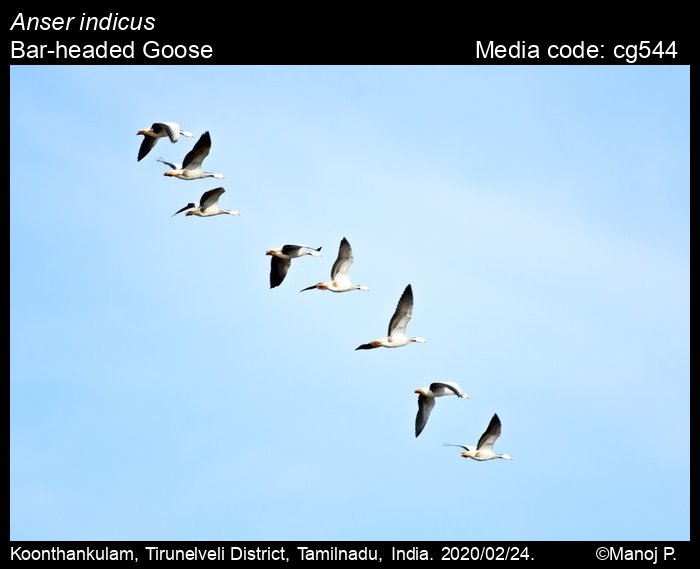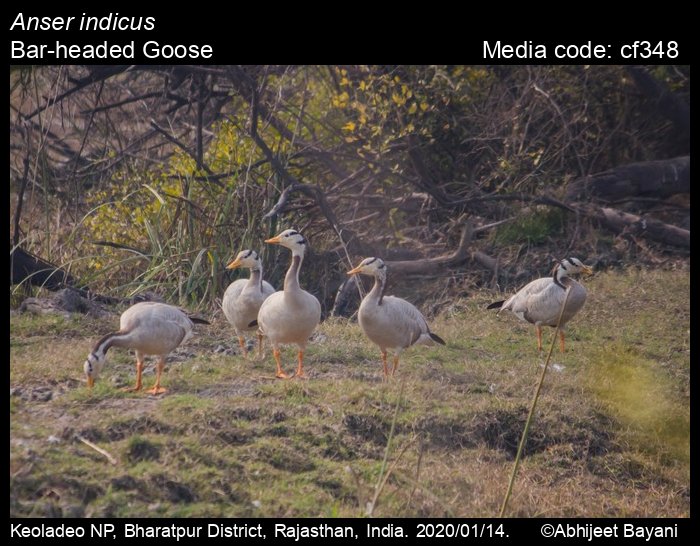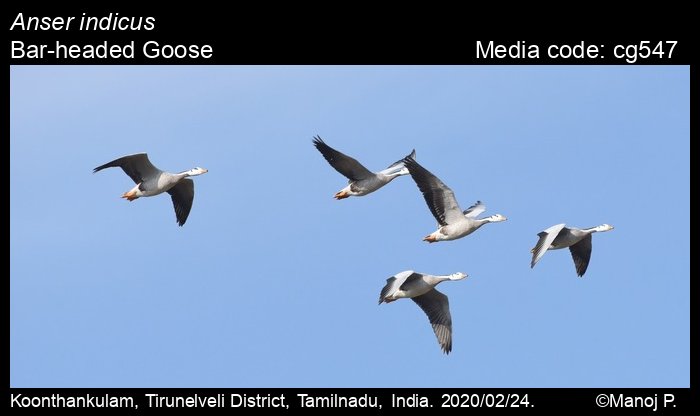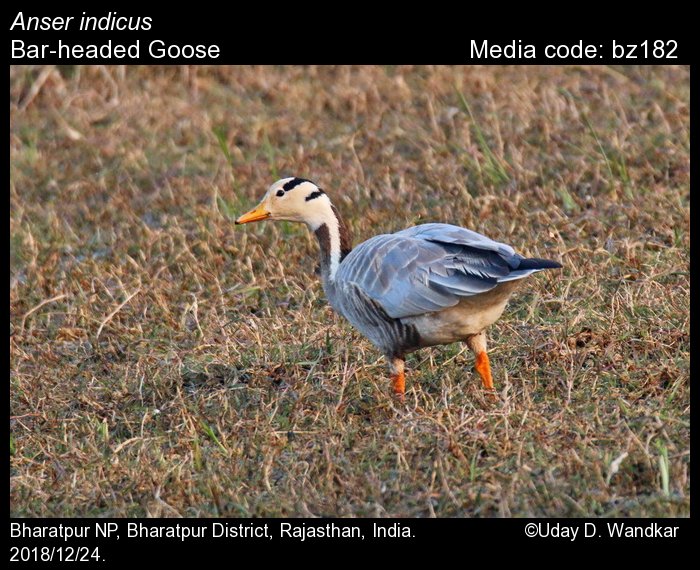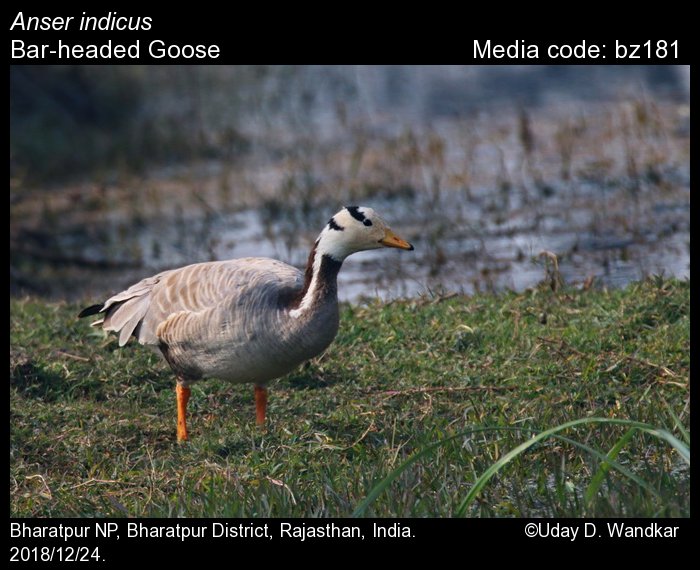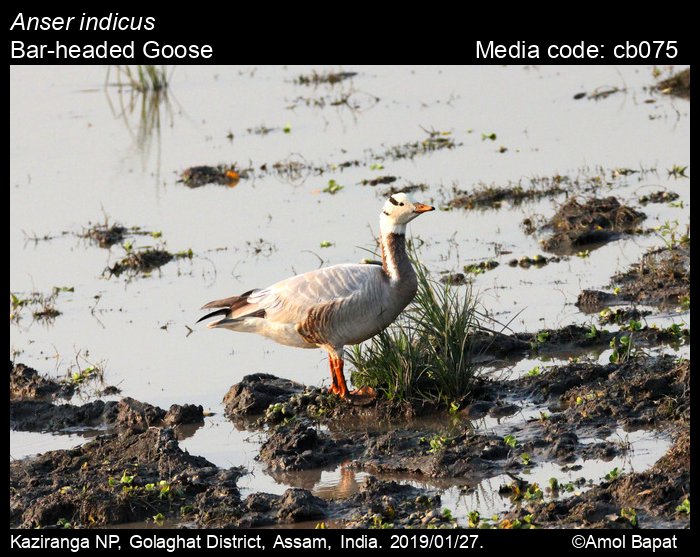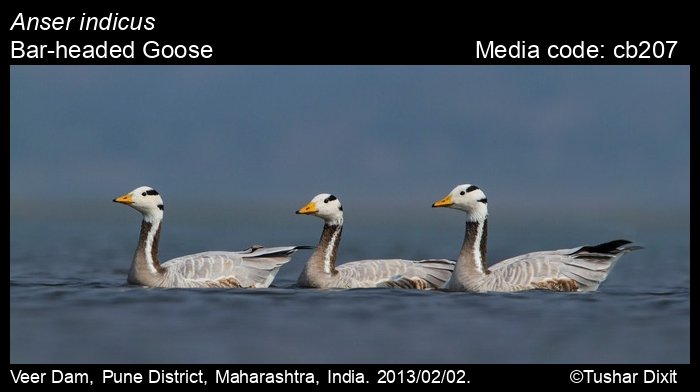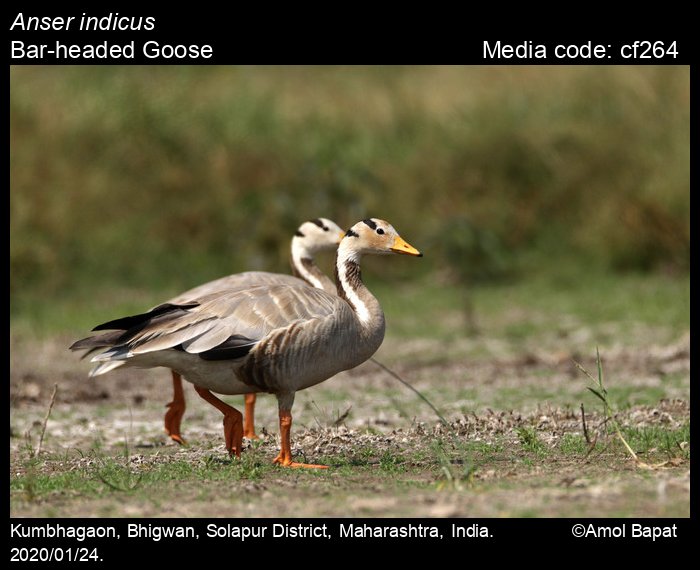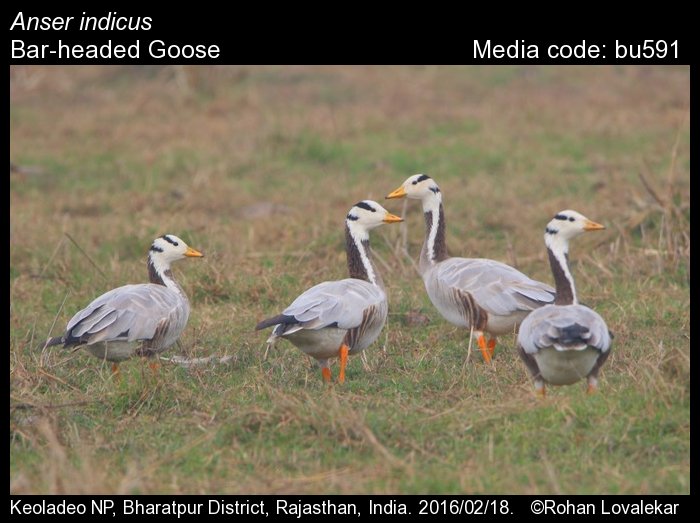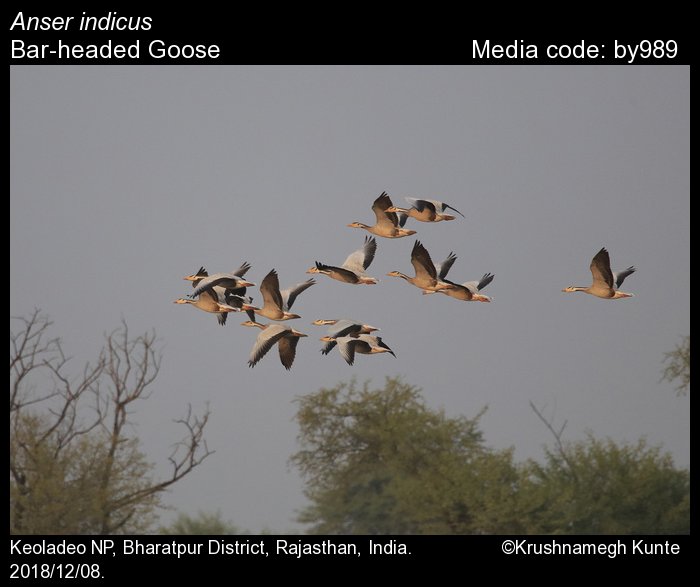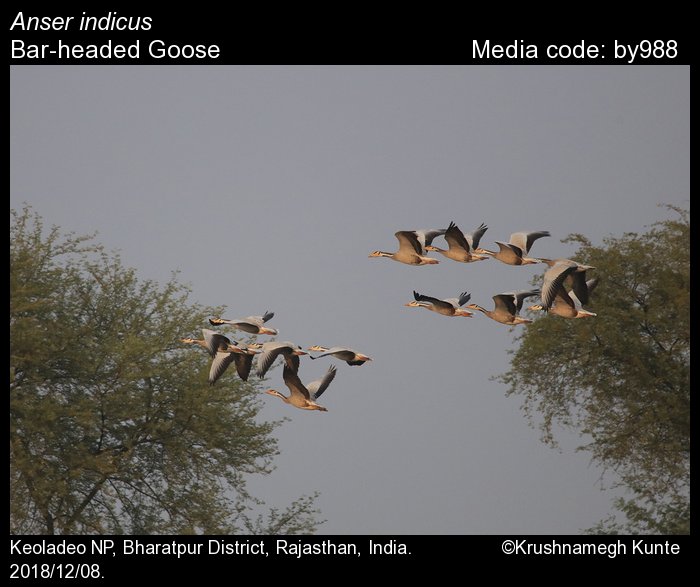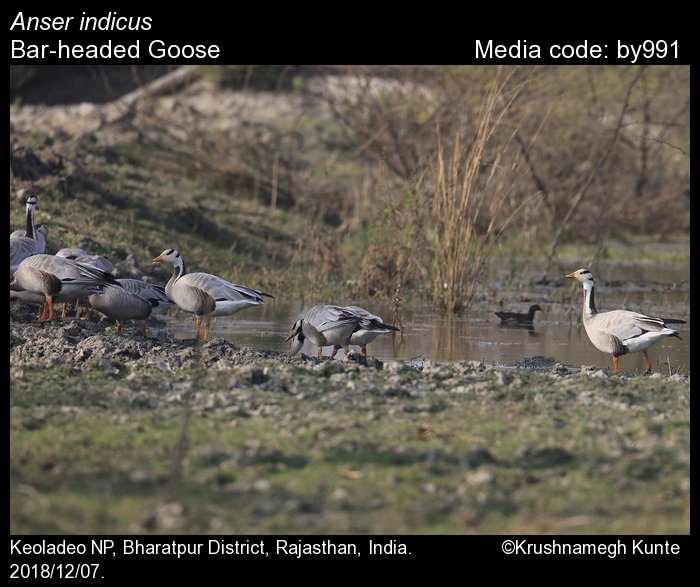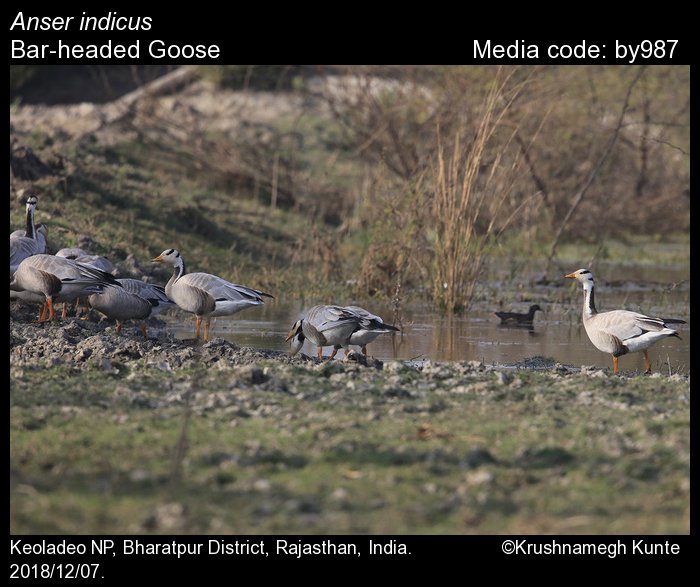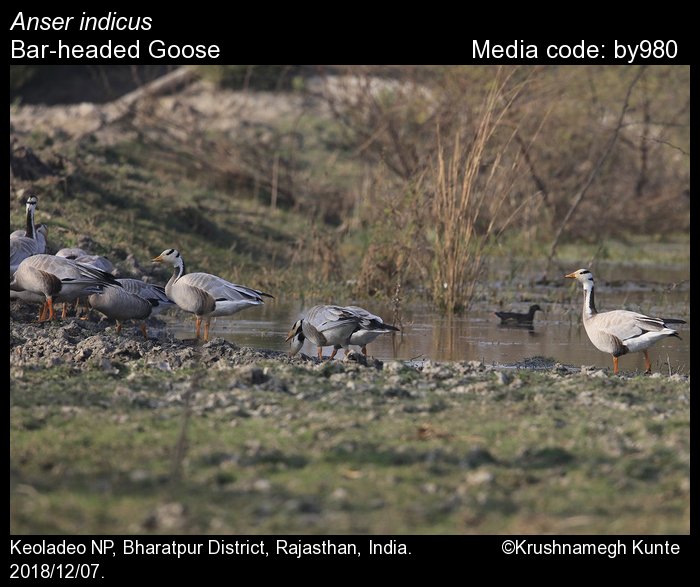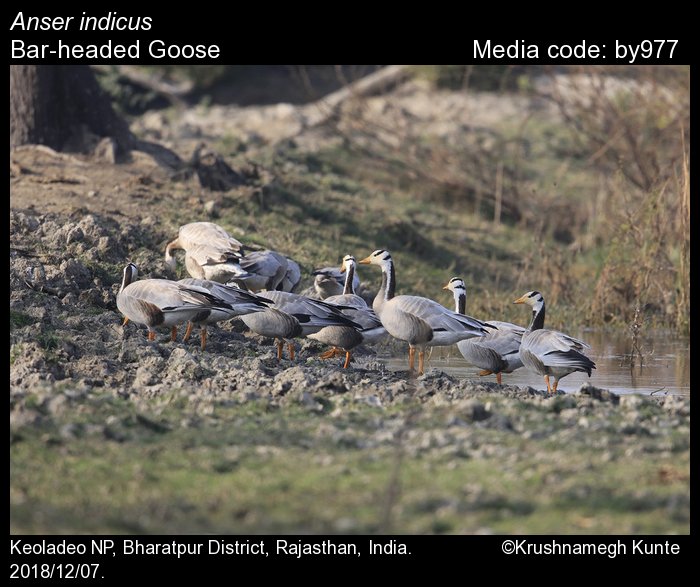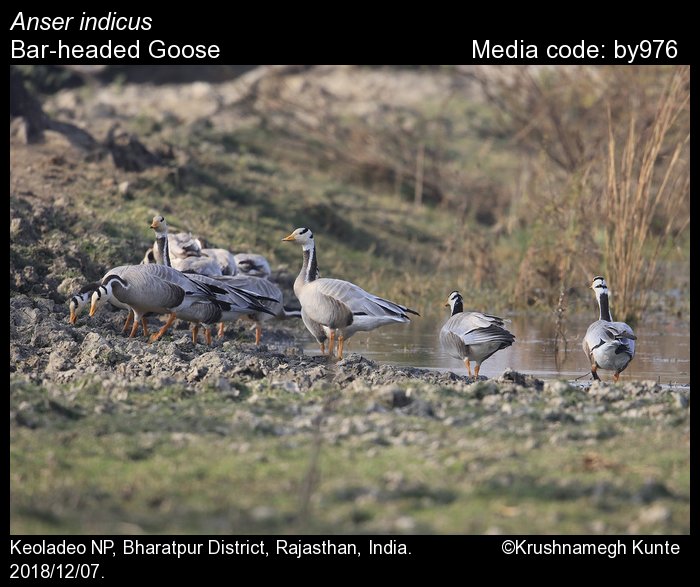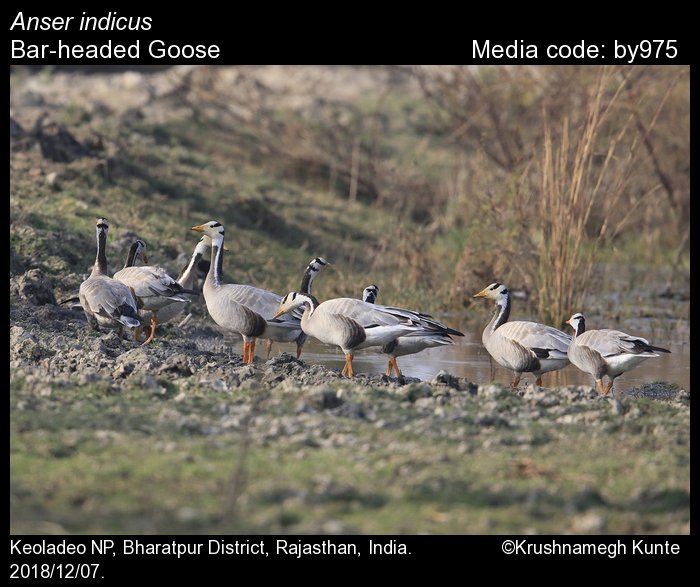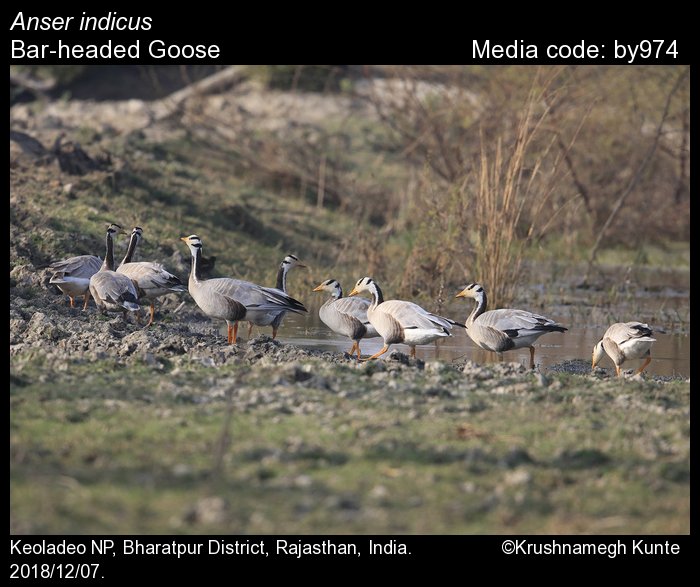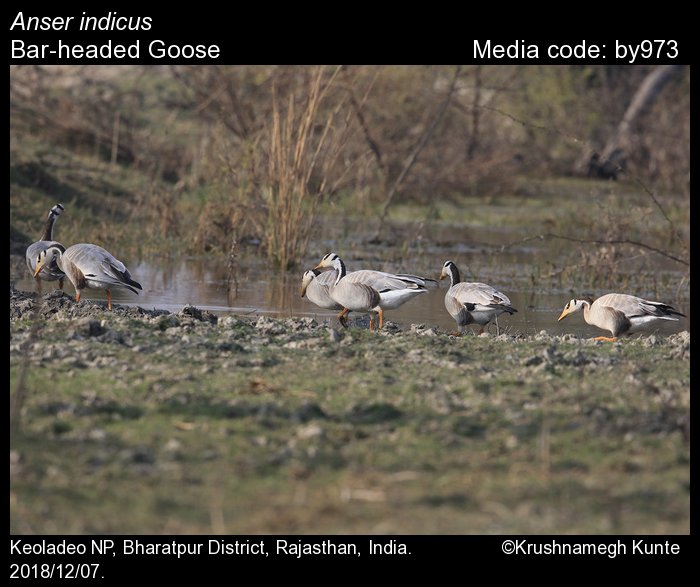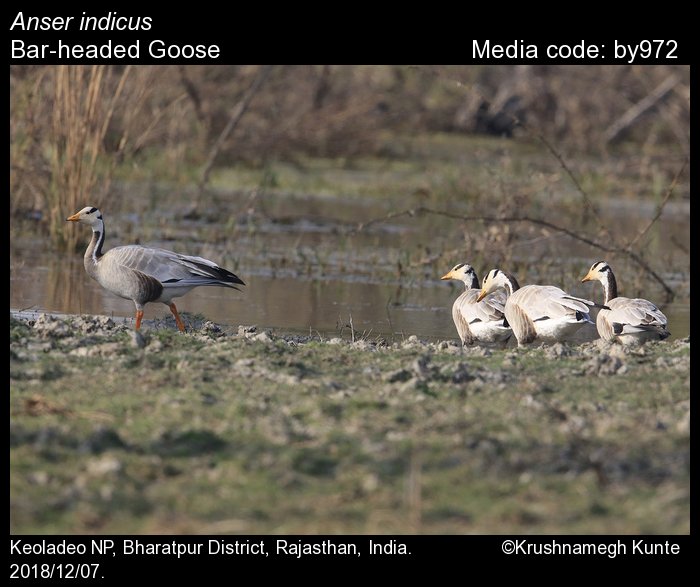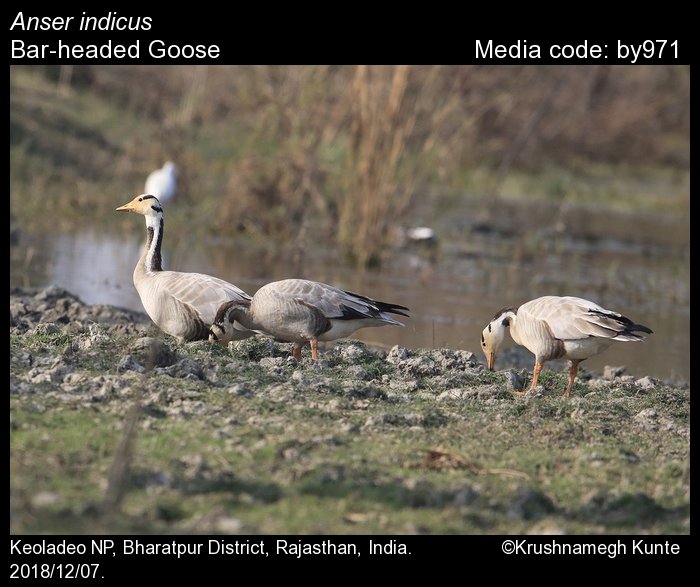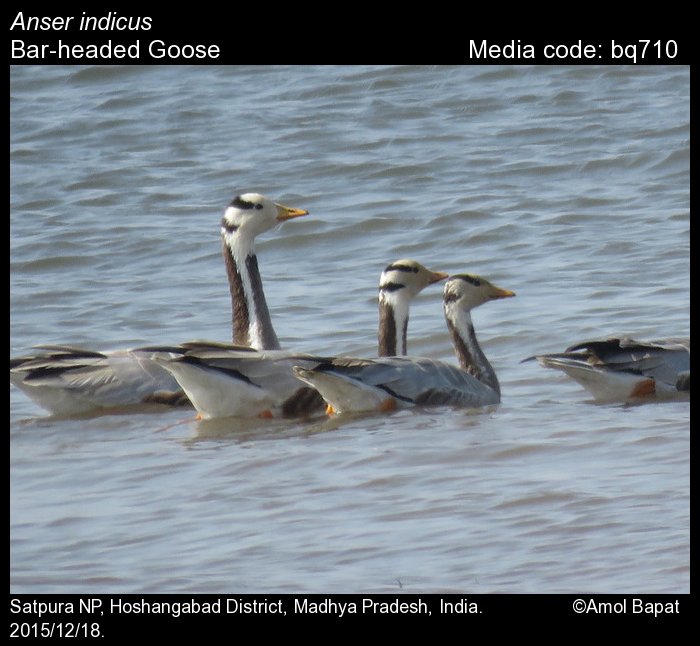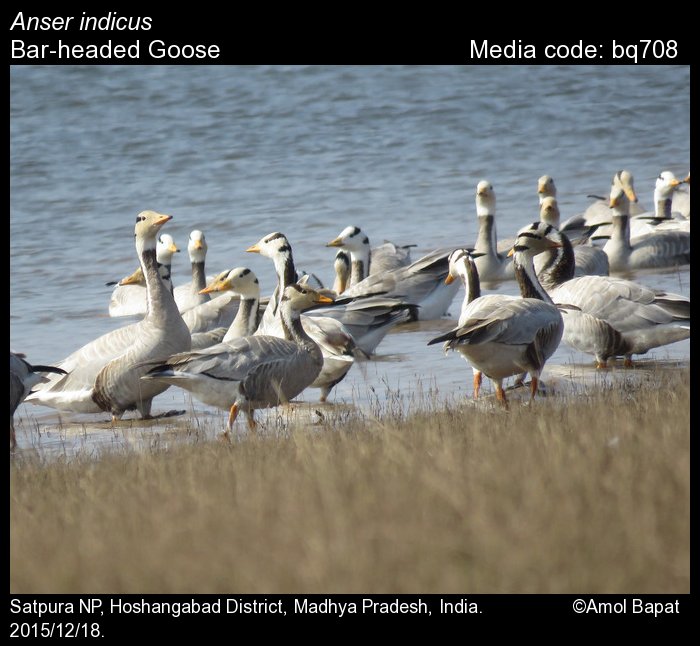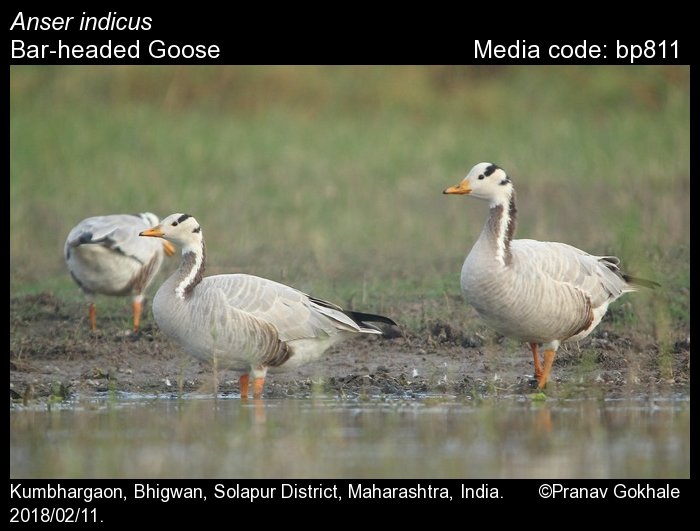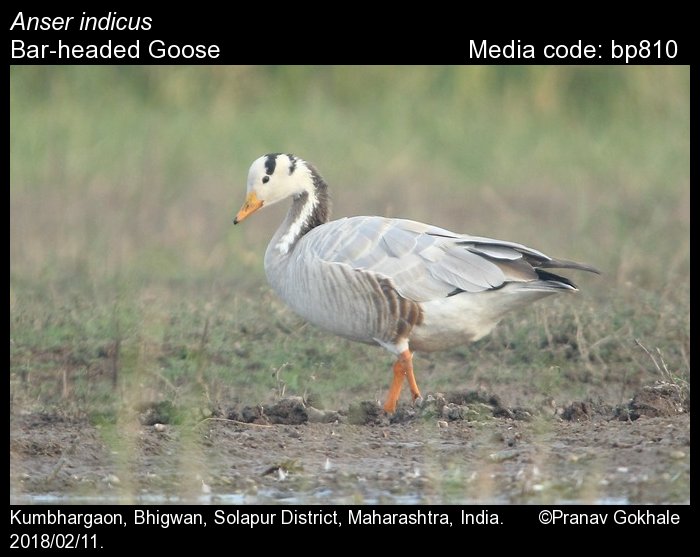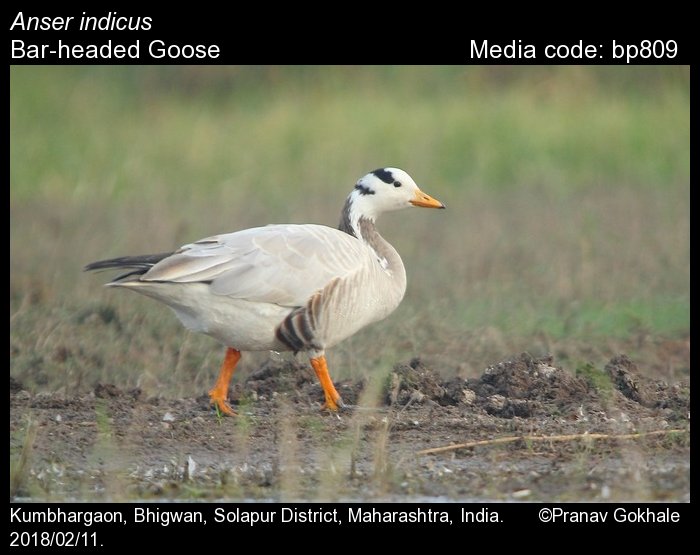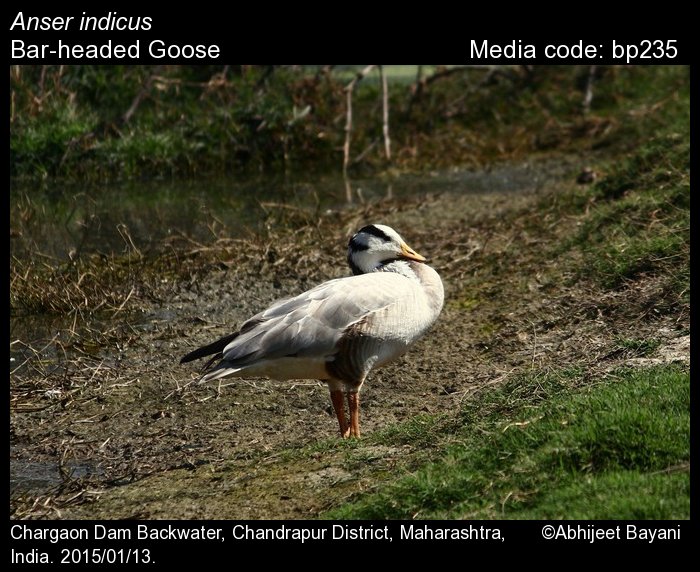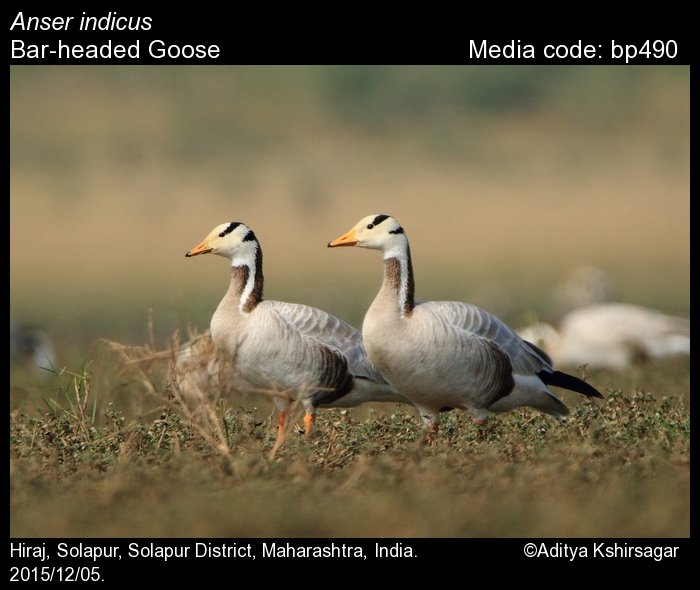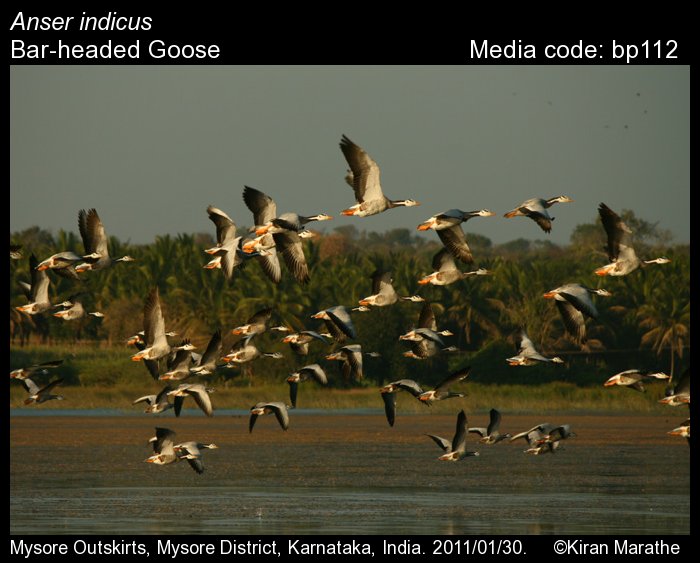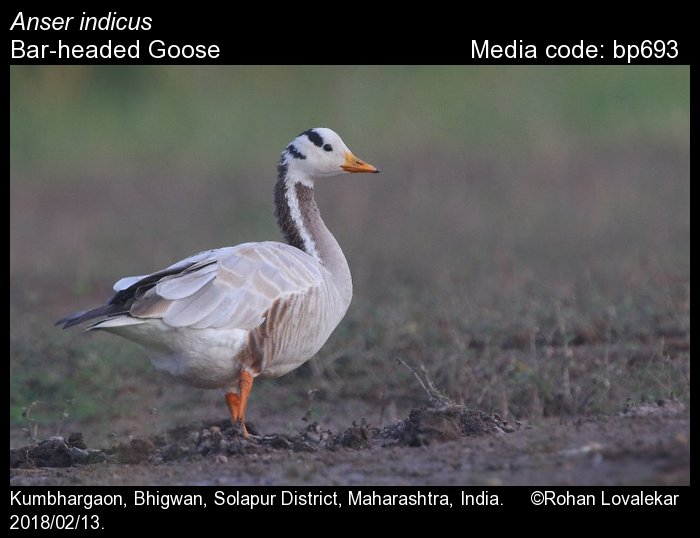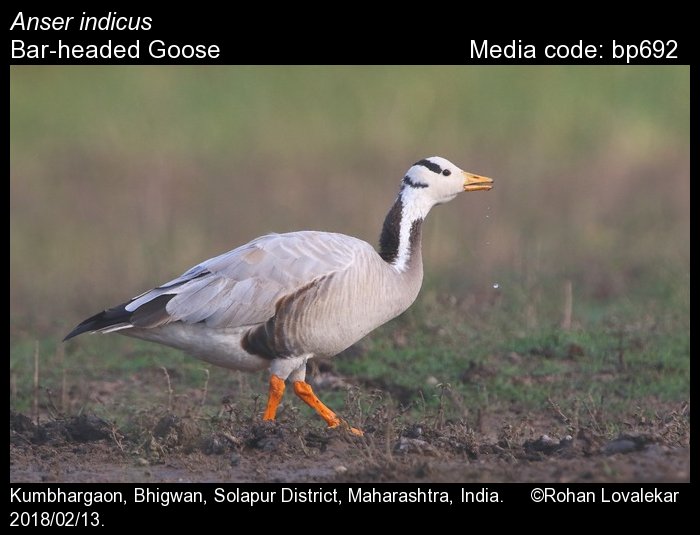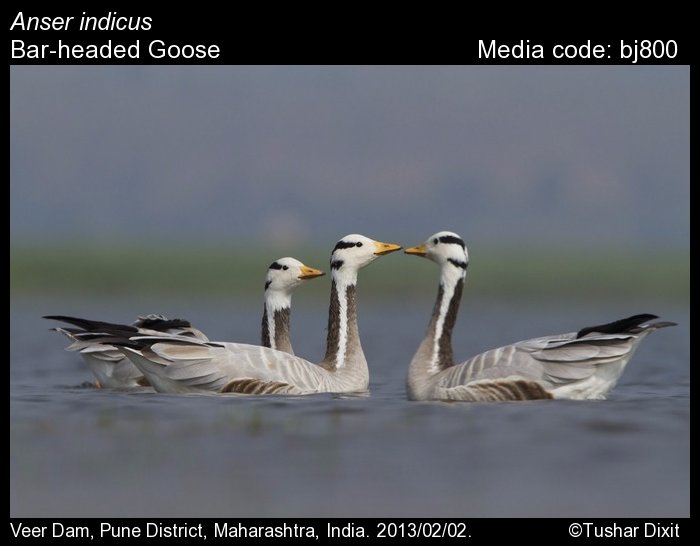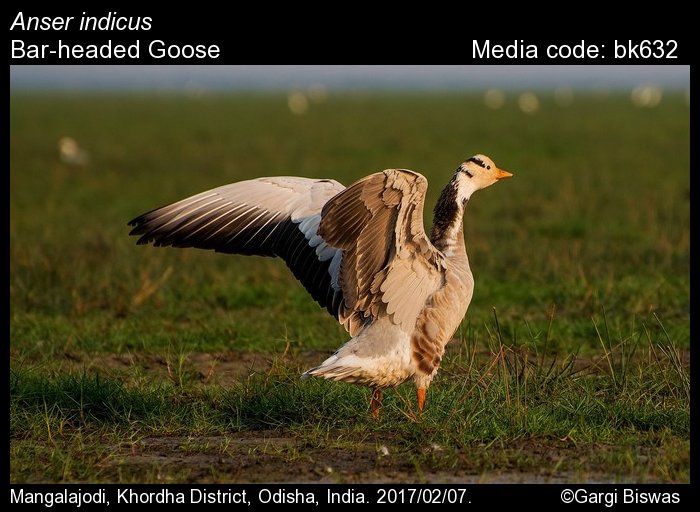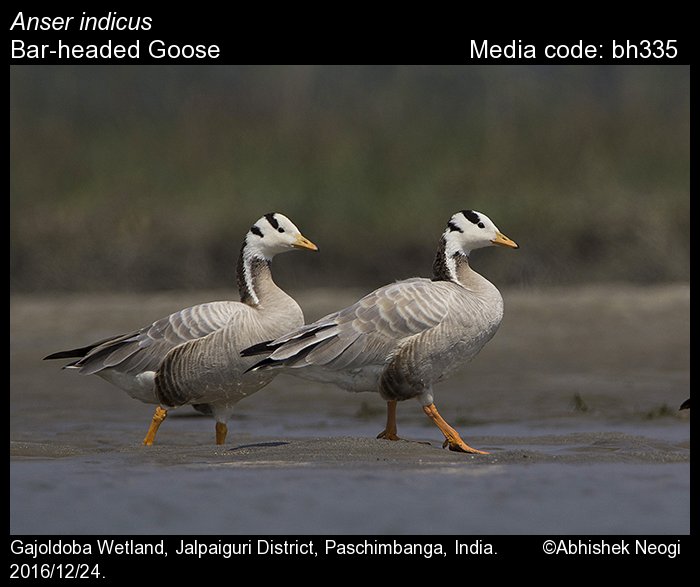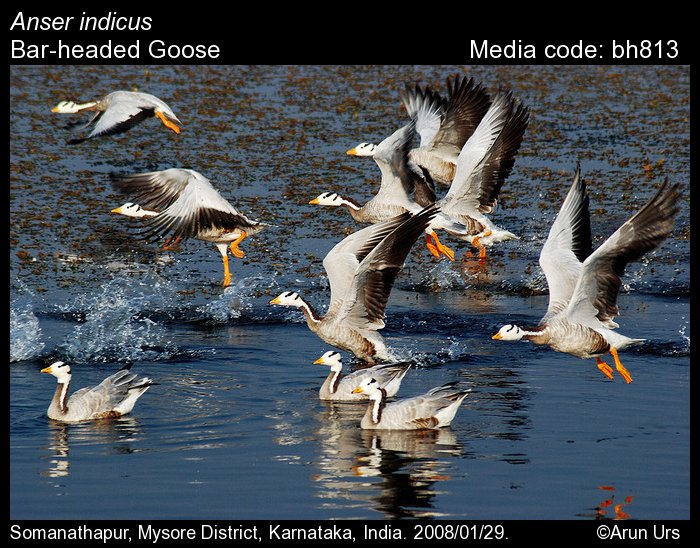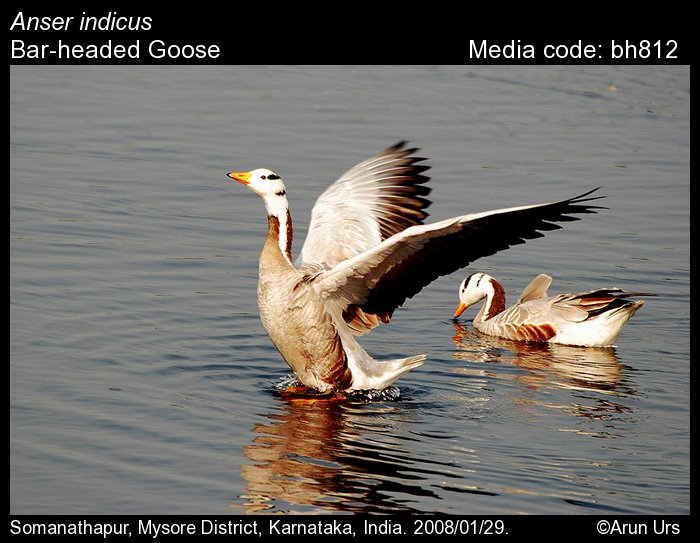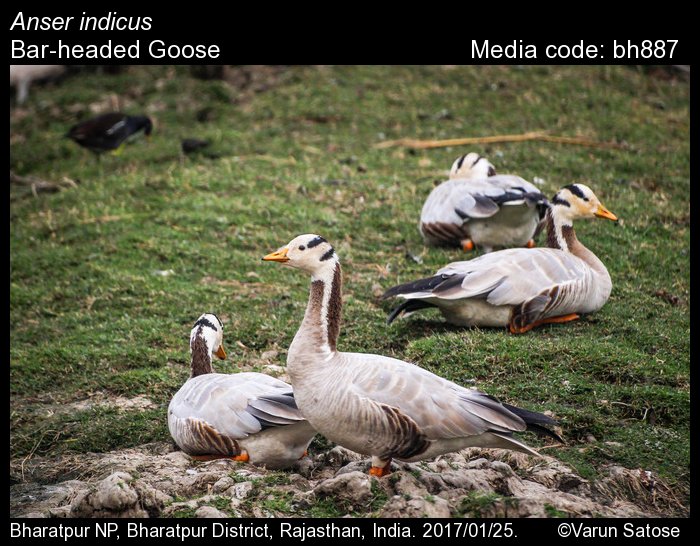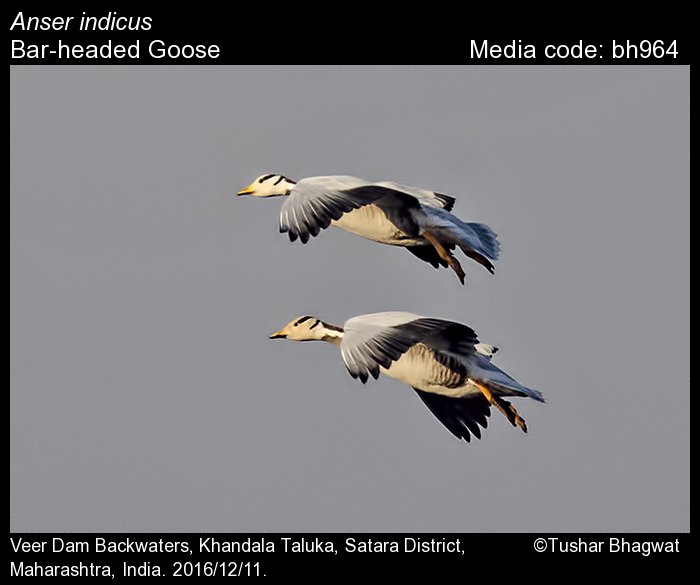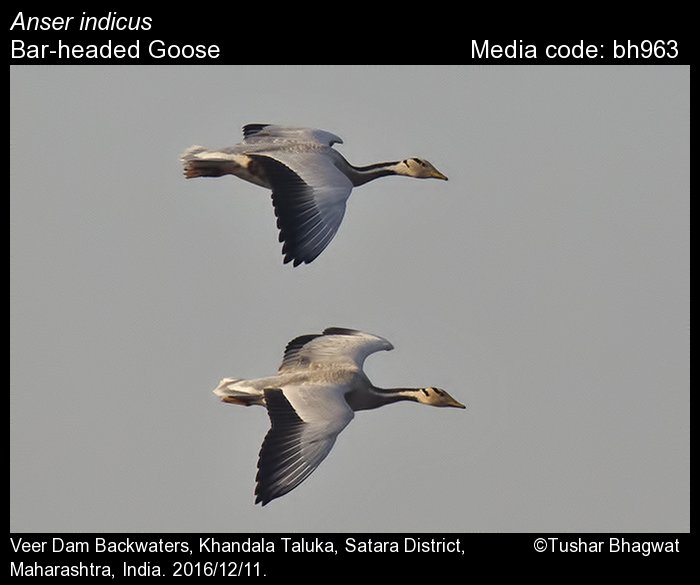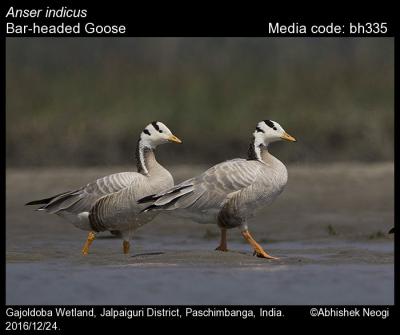
Subspecies in India
Old Taxonomy: Anas indicus Latham, 1790
Photo Gallery and Species Biology
Breeding Season: Late May-June, in Ladakh on the high plateau lakes at c. 4300 meters elevation.
Nest: Slight depression in the ground thickly padded with vegetation, among marshes, on ground near islands, beside freshwater or saline lakes.
Eggs: 4–6 eggs, ivory white colour, size eggs 84.4 x 55.1 mm.
Size: 71–76 cm.
Distinguishing characters:
Adult: Slender, pale grey, brown, and white goose; Pale grey with white face, white stripe down each side of brown neck, dark hindneck and lower flanks, two dark bars on hindcrown. Bill and legs yellow, bill-tip black.
Young/Immature: Paler, lacks the dark bars on hindcrown, hindneck and hindcrown are dusky brown, beak and feet are greenish-yellow.
Similar species in India: None. It is a very distinct (morphologically) species and cannot be confused any other species that occurs in India.
It is a gregarious species, forming family parties of 5 or 6 and flock of 100 or more. It is crepuscular and nocturnal, mainly foraging in the night, however, can be seen active during daytime.
Foraging Behaviour: Extensively herbivorous diet that consists of grasses, roots, stems and green parts of plants berries, insects and small crustacea. It is known to cause serious damage to winter crops in many regions (pers. obs.)
Call/Song: Slow honking sounds but more nasal and musical
Migration Status: Migratory, wintering (November to March) at much lower elevations throughout India preferring lowland swamps, lakes and rivers. It is often seen along with Greylag Goose.
IUCN Status: Least Concern
| State | Jan | Feb | Mar | Apr | May | Jun | Jul | Aug | Sep | Oct | Nov | Dec | No date |
|---|---|---|---|---|---|---|---|---|---|---|---|---|---|
| Andaman and Nicobar Islands | |||||||||||||
| Andhra Pradesh | |||||||||||||
| Arunachal Pradesh | |||||||||||||
| Assam | 1 | 1 | |||||||||||
| Bihar | |||||||||||||
| Chandigarh | |||||||||||||
| Chhattisgarh | |||||||||||||
| Dadra & Nagar Haveli | |||||||||||||
| Daman & Diu | |||||||||||||
| Delhi | |||||||||||||
| Goa | |||||||||||||
| Gujarat | |||||||||||||
| Haryana | |||||||||||||
| Himachal Pradesh | |||||||||||||
| Jammu and Kashmir UT | |||||||||||||
| Jharkhand | |||||||||||||
| Karnataka | 2 | ||||||||||||
| Kerala | |||||||||||||
| Ladakh UT | |||||||||||||
| Lakshadweep | |||||||||||||
| Madhya Pradesh | 1 | 1 | 1 | ||||||||||
| Maharashtra | 1 | 5 | 4 | ||||||||||
| Manipur | |||||||||||||
| Meghalaya | |||||||||||||
| Mizoram | |||||||||||||
| Nagaland | |||||||||||||
| Odisha | 2 | ||||||||||||
| Paschimbanga | |||||||||||||
| Pondicherry | |||||||||||||
| Punjab | |||||||||||||
| Rajasthan | 2 | 3 | 3 | ||||||||||
| Sikkim | |||||||||||||
| Tamil Nadu | |||||||||||||
| Telangana | |||||||||||||
| Tripura | |||||||||||||
| Uttar Pradesh | 1 | ||||||||||||
| Uttarakhand | |||||||||||||
| West Bengal | 2 | ||||||||||||
| Total | 6 | 11 | 1 | 1 | 11 |
1. Rasmussen, P. C., and J. C. Anderton. 2005. Birds of South Asia: The Ripley Guide. Washington, DC.
2. Ali, S., and S. D. Ripley. 1978. Handbook of the Birds of India and Pakistan: Together with those of Nepal, Sikkim, Bhutan and Ceylon (Vol. 1). Oxford University Press.
3. Stuart Baker, E. C. 1933. The Nidification of Birds of the Indian Empire. Taylor And Francis.
4. BirdLife International. 2018. Anser indicus. The IUCN Red List of Threatened Species 2018: e.T22679893A131908564
Page citation
Anonymous 2026. Anser indicus (Latham, 1790) – Bar-headed Goose. In Satose, V., A. Bayani, V. Ramachandran, P. Roy, and K. Kunte (Chief Editors). Butterflies of India, v. 2.17. Published by the Indian Foundation for Butterflies. URL: https://www.birdsofindia.org/anser-indicus, accessed 2026/01/02.
